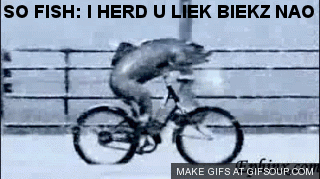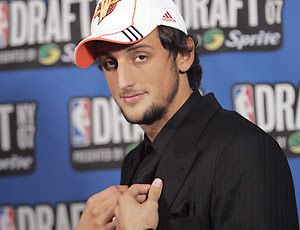coldfish wrote:Just to address the OP
Chicago-Bull-E wrote:
Tank Example 1: 2003 Cleveland Cavaliers
Let's get the easiest out of the way. Lebron was a junior high school superstar already, and Cleveland tanked to get him. What did they do? Oh, just traded their best player the year before and signed a bunch of nobodies to that 2002 team. Andre Miller, Wesley Person, and Lamond Murray were the top 3 VORP leaders of that team in 2001, and all were gone the next year. The tank led to 5 years of great playoff runs in the 2000s, with the king returning for 4 more years of deep playoff runs and a championship in the 2010s.
This completely ignores the facts that:
- The original tank job functionally failed, despite the fact that they drafted the second best player of all time
- The team only came together and won because the second best player of all time was pissed off at Riley and he is from Cleveland.
This was not a successful tank job.
I will not defend or attack the tanking without context. But drafting Lebron James, getting regulary into the playoffs, getting to the finals and even reach 60 wins... how is this tanking not working?
Yes, no championship but they were relevant and title contenders for a while, had a multiple MVP guy in their team...
How is this a failure?
More, I would say that the tanking worked, but the aftermath of that didn't work as well (and, in my opinion, when they started to go for veterans that made little sense).
coldfish wrote:Tank Example 2: 2012 Golden State Warriors
That's right, the dynasty of the 2010s was a tank effort. Golden State traded their best player at the time, Ellis, for an oft injured center in Bogut. Don't think that was a tank move? The fanbase hated it so much they booed Joe Lacob at a jersey retirement ceremony (oh how times have changed) But that wasn't even the big part of the tank. The Warriors owed their pick to the Jazz if it fell out of the top 7. So hey, lets lose some more games to keep that pick. It worked, and the team drafted Harrison Barnes with that pick, who was an integral part of that 1st championship team. A beautiful tank job, more below:
https://bleacherreport.com/articles/1122335-why-the-warriors-made-the-right-move-in-monta-ellis-tradeYes, it might seem inherently idiotic to trade arguably the team’s best player in Ellis for a defunct star with a history of injuries that will likely not suit up this season. However, keep in mind that the Warriors' first-round pick goes to the Utah Jazz should they finish better than the league’s seven worst teams.
So while the move might hurt the team in the short run, losing now might be the best play for the team’s future.
The Warriors were a slow build. If you read the post game thread, the tankers would have blown up the Warriors when they lost in the first round. They were a mediocre team built on an oft injured, athletically limited combo guard at that time. Tankers would have seen no future and broke the team up in hopes of doing better in the draft . . . than Steph Curry.
Monta Ellis sucked. He was extremely unpopular among the basketball purists and analytics guys.
If anything, the GS route is what I would advocate. Let the team gel and incrementally improve them over time. Don't intentionally set them up to fail.
I agree with this. This is what I'm trying to explain: tank is an option, a way to get something but the goal isn't the tank itself and should not be superstar or bust anytime.
Even so... the slow build of GSW is somehow the exception in all the NBA. Somehow because teams have done that and traded all away when there was a chance to get a special player (Clippers for example) and even the Cavs when Lebron returned (traded the #1 pick right away).
coldfish wrote:That's the mentality the organization and fanbase is going to have to embrace. Sell high, even when it hurts. The trade value difference can't be understated between a young player contributing to an up and coming team versus a chucker on one of the worst teams in the league.
I agree and disagree. This is what you have to do if you see that's just an hot streak and everything you know about the player is saying that it is unlikely he will sustain that level and/or improve.
Than you take a gamble: with these indicators you will know if you're likely trading high or if you're still trading low. This evaluation will be crucial. There is no 100% guaranteed solution.
But looking at this team, we will face that question soon... we have good contracts and good players. Any decision will not be easy because it is not certain but if we had to make that decision today, I would agree with trading high for a nice offer.











